Climate-Specific Sprinkler Challenges in Conyers
Conyers, Georgia's humid subtropical climate presents unique challenges for sprinkler system maintenance and performance. High humidity, temperature fluctuations, and seasonal rainfall variations require proactive maintenance strategies to prevent system failures and ensure optimal irrigation efficiency.
Understanding local climate impacts helps homeowners anticipate problems and implement preventive measures that extend system life while maintaining landscape health throughout changing seasonal conditions.
Humidity and Moisture-Related Issues
Georgia's high humidity levels create conditions that promote fungal growth and corrosion in sprinkler system components. Control boxes, wiring connections, and valve mechanisms are particularly susceptible to moisture damage that can cause electrical failures and operational problems.
Professional moisture management includes proper sealing of electrical connections, adequate ventilation for control equipment, and regular inspection of components prone to humidity damage. These preventive measures reduce costly repairs and system downtime.
Condensation buildup in underground valve boxes creates standing water that accelerates corrosion and promotes electrical shorts. Professional maintenance includes proper drainage solutions and moisture barrier installations that protect critical system components.
Temperature Fluctuation Effects
Georgia's variable temperatures cause expansion and contraction in piping systems that can lead to joint separation and leaks. Professional installation uses appropriate materials and joining methods that accommodate thermal movement without compromising system integrity.
Freeze protection becomes important during occasional winter cold snaps when temperatures drop below freezing. Professional systems include proper drainage capabilities and insulation strategies that prevent freeze damage to exposed components.
Summer heat stress affects both system components and irrigated landscapes. Professional programming adjusts watering schedules to compensate for increased evaporation rates while preventing heat damage to sensitive system parts.
Seasonal Rainfall Considerations
Georgia's distinct wet and dry seasons require flexible irrigation programming that responds to changing moisture conditions. Smart controllers with weather monitoring capabilities automatically adjust watering schedules based on local precipitation data.
Heavy spring rainfall can saturate soils and create runoff problems when irrigation systems operate unnecessarily. Professional systems include rain sensors and soil moisture monitoring that prevent overwatering during wet periods.
Summer drought conditions require increased irrigation frequency while managing water consumption efficiently. Professional programming balances plant needs with water conservation during extended dry periods common in Georgia summers.
Preventive Maintenance Scheduling
Spring maintenance addresses winter damage and prepares systems for active growing seasons. Professional services include system activation, component inspection, and programming updates that optimize performance for upcoming weather conditions.
Summer maintenance focuses on performance optimization during peak demand periods. Regular inspection of spray patterns, pressure levels, and component function ensures consistent coverage during critical growing months.
Fall maintenance prepares systems for dormant seasons while addressing component wear from active use periods. Professional services include system winterization, component replacement, and programming adjustments for reduced irrigation needs.
Water Quality and System Longevity
Local water quality affects sprinkler system performance and component lifespan. High mineral content can cause nozzle clogging and internal component buildup that reduces efficiency and requires more frequent maintenance.
Professional water quality assessment identifies potential problems and recommends appropriate filtration or treatment solutions. These investments extend system life while maintaining optimal performance throughout changing conditions.
Regular flushing of irrigation lines removes accumulated debris and mineral deposits that can affect water distribution patterns. Professional maintenance includes systematic cleaning procedures that maintain consistent performance.
Integration with Landscape Health
Climate-appropriate irrigation supports landscape health while managing water resources efficiently. Professional programming considers local plant requirements, soil conditions, and weather patterns that affect irrigation needs throughout the year.
Coordination with other landscape services ensures irrigation systems work effectively with mulching and other moisture retention strategies that complement mechanical irrigation systems.
Professional services also coordinate irrigation timing with drainage improvements and site preparation work that affects water management and landscape health on Conyers properties.
Technology Solutions for Climate Challenges
Modern smart controllers offer weather-based scheduling that automatically adjusts irrigation based on local climate conditions. These systems prevent overwatering during humid periods while ensuring adequate moisture during dry spells.
Moisture sensors provide real-time soil condition data that prevents unnecessary irrigation when natural rainfall provides adequate moisture. Professional installation ensures sensors are properly positioned and calibrated for accurate operation.
Remote monitoring capabilities allow professional services to track system performance and identify problems before they cause significant damage or water waste. This proactive approach minimizes repair costs while maintaining optimal function.
Professional Service Benefits
Licensed irrigation professionals understand Conyers' specific climate challenges and can design maintenance programs that address local conditions effectively. This expertise prevents problems that commonly affect sprinkler systems in Georgia's climate.
Professional services include emergency repair capabilities that respond quickly to storm damage or component failures during critical growing seasons. Rapid response prevents landscape damage and minimizes water waste from system malfunctions.
For comprehensive sprinkler system maintenance tailored to Conyers' climate conditions, contact Instant Rain Landscape at (678) 598-5317. Our irrigation specialists provide proactive maintenance programs that prevent climate-related problems while ensuring optimal system performance throughout Georgia's changing seasons.
